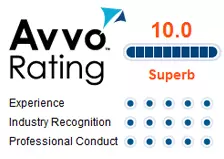As lawyers have an absolute and well established duty to notify in writing both the Attorney Grievance Commission (AGC) and the Attorney Discipline Board (ADB) within 14 days of our client’s conviction for drunk driving or any of its variations set for in MCL 257.625. For an explanation of this duty see MCR 9.120(A). We have this duty because misconduct, including our own attorney client’s conviction of a crime like drunk driving, grows out of two deeply rooted public policy considerations: (1) Unlike most other professions, we are self-regulating; the duty to report other attorneys’ misconduct is part of the trade-off for this right of self-regulation; (2) as lawyers, we have a duty to maintain personal integrity, even when we are on our own time, and violating a criminal law is grounds for finding an failure to maintain personal integrity.
Generally, when notified of a conviction, the Administrator will send out a request for investigation asking the convicted attorney to provide documents including the probation report, alcohol and/or mental health assessments and police reports. The convicted attorney will also be required to provide an explanation of event, and provide an authorization for release of any records allowing the AGC to complete their investigation with any documents not provided.
After conducting an investigation through its administrator, the Commission makes a decision whether or not to dismiss the matter, file a complaint with the Attorney Discipline Board, or place the convicted attorney on a contractual probationary period. If the Commission determines that the misconduct, if prosecuted, would not result in a substantial suspension or revocation of the convicted attorney’s license, the commission may defer disposition of the matter and place the respondent on contractual probation for not more than two years. Contractual probation is only available if the misconduct is significantly related to a substance abuse problem, and the probation includes a requirement for substance abuse treatment.
The AGC doesn’t prosecute many attorneys for DUI convictions. If an attorney has no priors, there wasn’t an injury accident, there are no aggravating circumstances,
and the attorney appears to be contrite, they may close out the file with an admonishment, which is not discipline and is confidential unless there is a future finding of misconduct in another matter, in which case the admonishment becomes public record information for the panel’s consideration as an aggravating factor.
Alternatively, if the Commission believes that the attorney has an ongoing alcohol problem, they will offer contractual probation for two years – a confidential diversion program which is also not discipline – and direct the attorney to enter into a monitoring agreement for that period of time with the Lawyers and Judges Assistance Program (LJAP). According to the Michigan Bar Association’s web site, the LJAP provides free, confidential telephone and/or personal consultations for lawyers and judges and their families, as well as employees of the State Bar. Their licensed and certified mental health and addiction professionals offer these personalized services, as well as educational seminars and consultation services for law firms, large and small. They may be contacted on the web or at (800) 996-5522.
Related posts:
- Drunk Driving Lawyers Should Never be Required to Disclose Prior Convictions
- Are Some of Michigan’s Drunk Driving Defense Lawyers Unethical?
- Boyle Obtains Total Victory for Client Accused of Drunk Driving and Breath Test Refusal
- Pleading Guilty to Michigan DUI is a Client Decision
- DUI Lawyers as Highly Paid Enablers



